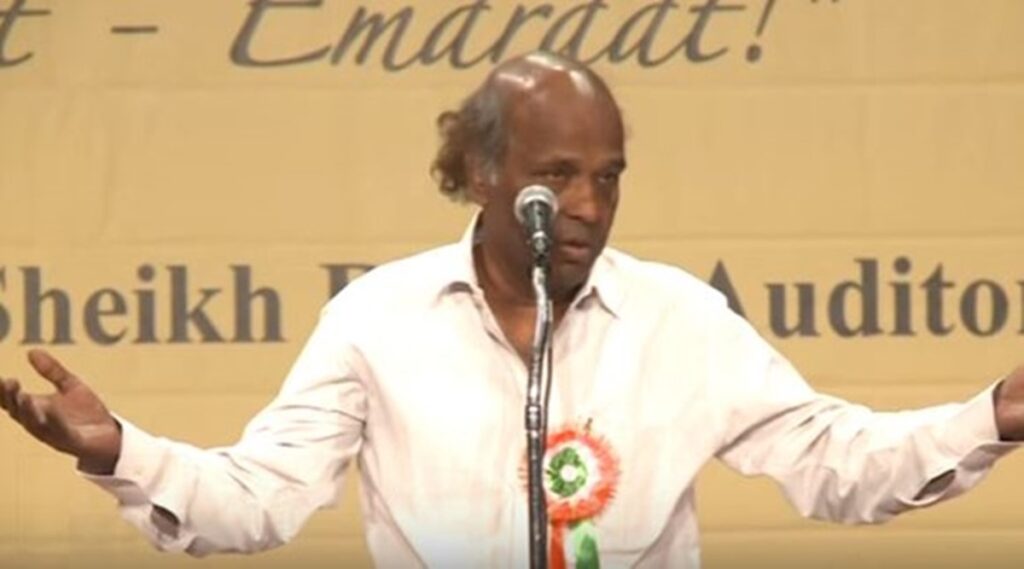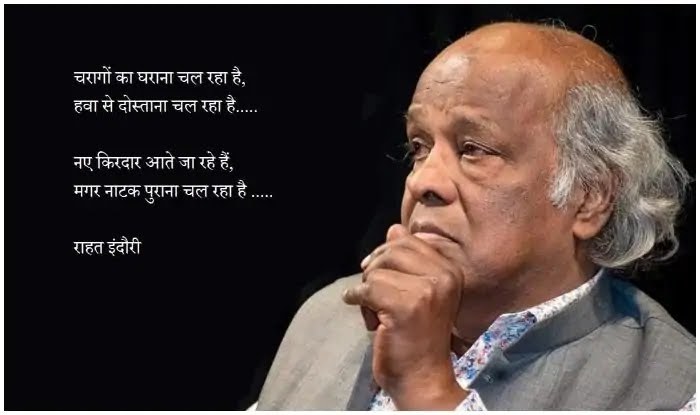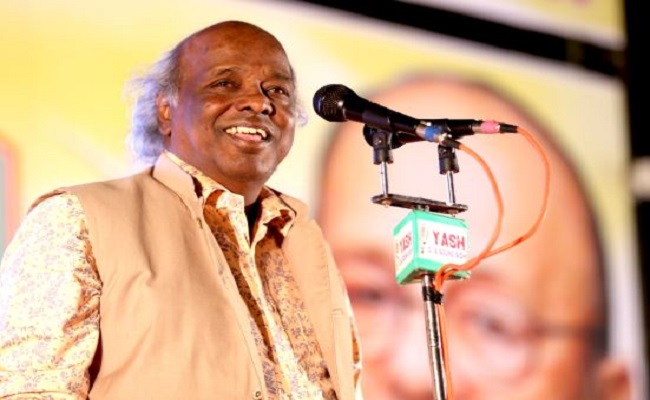The sudden demise of Rahat Indori has left his fans perturbed.
“Ankh mein paani rakho Honthon pe chingari rakho, Zinda rehna hai toh tarkeebein bahut saari rakho,” is one of the famous ghazals of the eminent Urdu poet Rahat Quraishi or as known to us, Rahat Indori. Rahat Indori, an Indian Bollywood lyricist and Urdu language artist, passed away today at Sri Aurobindo Institute of Medical Sciences in Indore. A former professor of Urdu language, he had already tested positive for COVID and was admitted to the hospital a few hours earlier. Rahat Sahab who was quite active on social media had shared the piece of news on his Twitter handle. Unfortunately, he suffered two heart attacks later which made it almost impossible to save him.

Urdu poetry is frequently likened with sentimentality for a romanticized past. With the dwindling state of Urdu in India, Rahat Indori was one of the few poets one could look out for. For ‘mushaira’ coordinators, he ensured theaters stuffed with youngsters, in India as well as over the world after the Indian diaspora. He also has some renowned books as well as a few songs to his name. Rahat Sahab is such a person that he had made his quality felt in every section of the three spheres. From a live entertainer swinging a ‘mushaira’ like a demigod bound with an over-burden of demeanor, he has moved shape. But one can certainly agree that his writeups indeed have more depth as compared to his live performances. He had been often compared with the poets of the bygone era like Wasim Barelvi and Bashir Badr.

Indori was mostly contrasted with Dushyant Kumar, who passed on in 1975. Dushyant wasn’t acknowledged by the artistic foundation, yet was very well known for his progressive thoughts. To some degree comparably, Indori was likewise called India’s Jaun Elia, an undaunted Pakistani writer. He was never very keen about talking to journalists and reporters because controversy always followed him in some way or the other. Even though he has faced ridicule for questioning Hindutva, he had always maintained his stance as someone who wasn’t religious at all. During the anti CAA protests, he got famous for his ghazal, “Sabhi ka khoon hai shamil yahan ki mitti mein; Kisi ke baap ka Hindustan thodi hai.” His distinctive voice along with his unique way of reciting ghazals set him apart from the rest. Rahat Indori Sahab’s poetry always had a tinge of romance and passion in them. When asked about hi inspiration, he often said, “Aadmi bbudha dimag se hota hai, dil se nahi.”
Indori advanced in three stages in the course of recent years-first, as an Urdu scholarly; second, as a fairly famous however scandalous live entertainer; and third, as a shayar-e-azam. The kind of success or ‘maqbooliyat’ that he received from the world of mushairas, only a limited few have been fortunate enough to receive it. Rahat Indori had high regard for the tradition of mushairas and had expressed grief in their commercialization in one of his interviews. His name had been frequently used in all the places where Urdu was uttered.
Rahat Sahab who had received a Ph.D. in Urdu literature titled “Urdu main Mushaira” always remained vocal about preserving the Urdu language, especially by its speakers instead of weighing the responsibility on anyone else. All of his works are a product of his love for the language Urdu. A painter by profession, he left his canvas and brushes to pick up a pen and paper due to the devotion he possessed for Urdu. Rahat Sahab believed that Urdu isn’t only limited to Shayari or ghazals but everywhere.
His books, ‘Naraz’, ‘Maujood’, ‘Do kadar or Sahi’ are some of his notable works. He also wrote the lyrics for Bollywood movies like ‘Khuddar’, ‘Munna Bhai MBBS’ among others. Anyone acquainted with his work discusses his demeanor, about his fuming outrage and how he can move easily from outrage to a sentimental state of mind. A revolutionary poet who penned down, “Hum se pehle bhi musafir kahin guzre honge, kam se kam raah ke patthar toh hataate jaate” had claimed in one of his previous interviews that he wants to be remembered just for his Shayari after his death.








